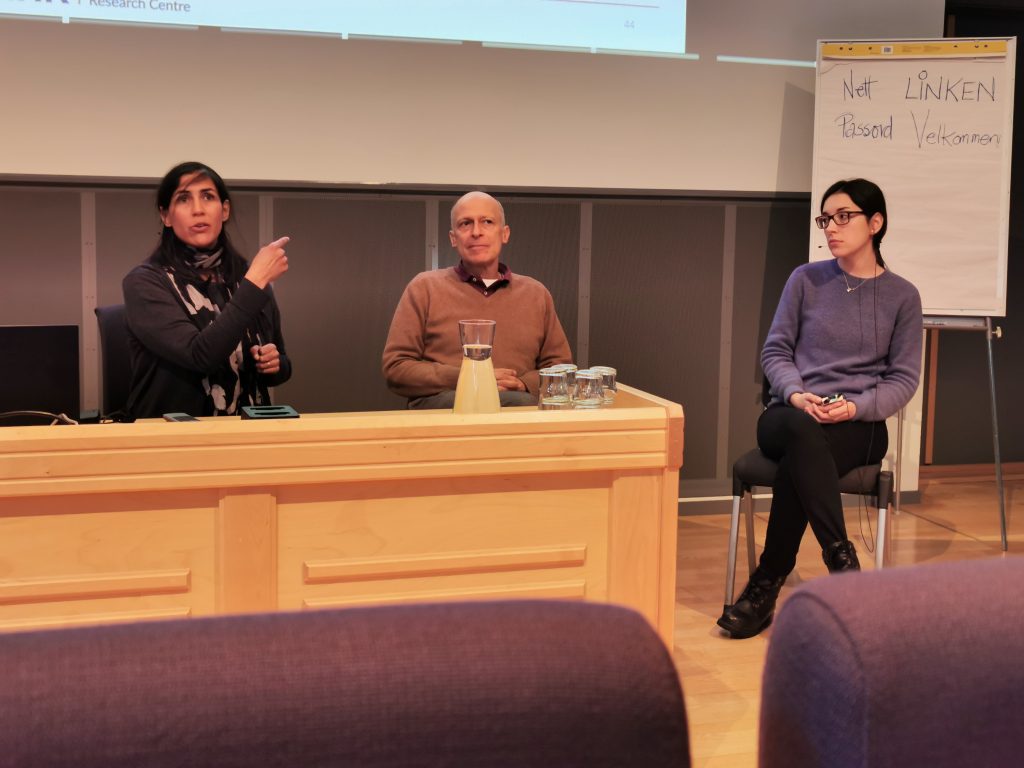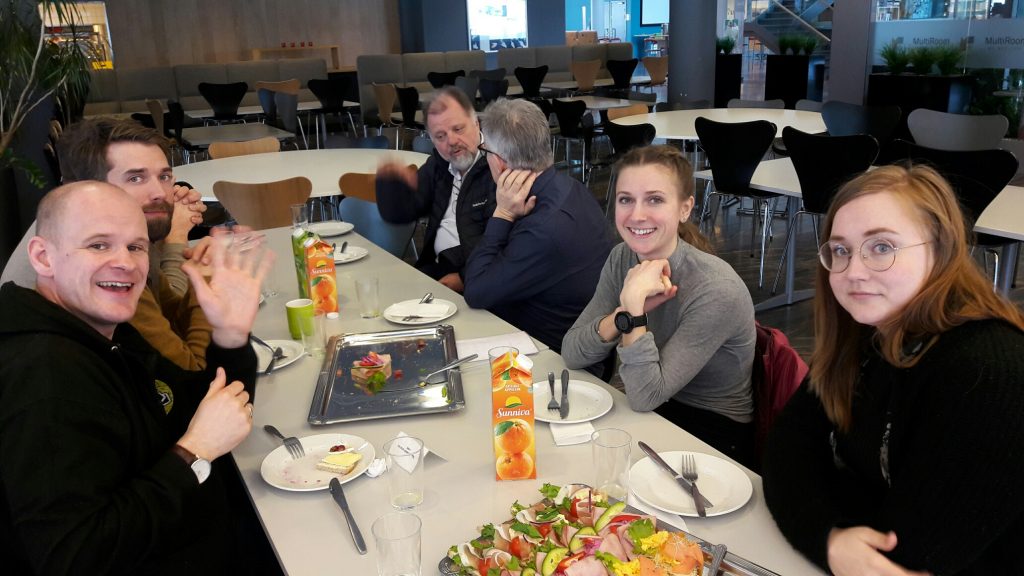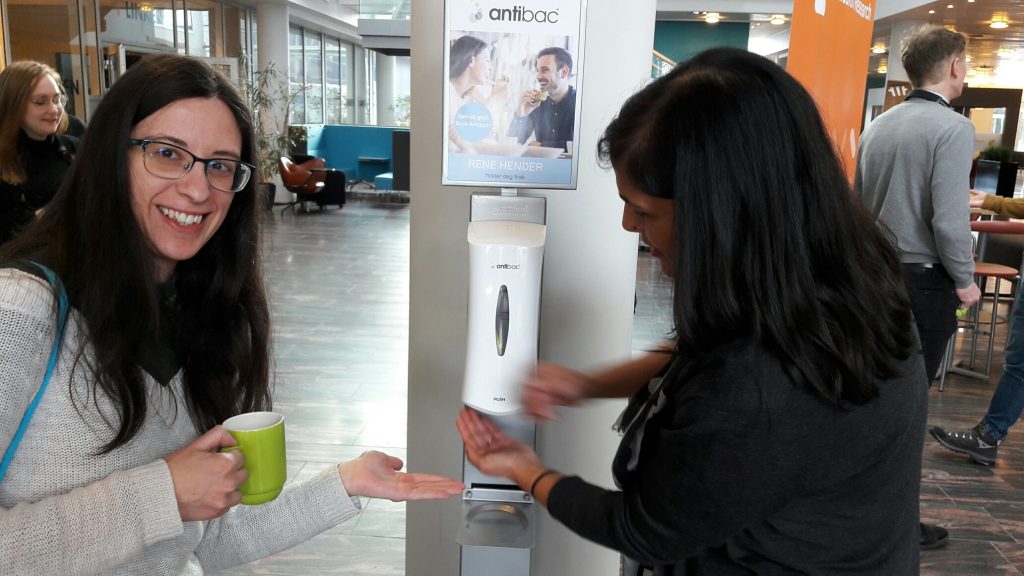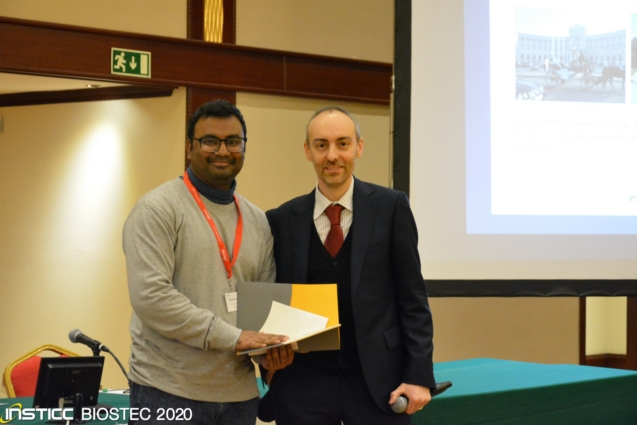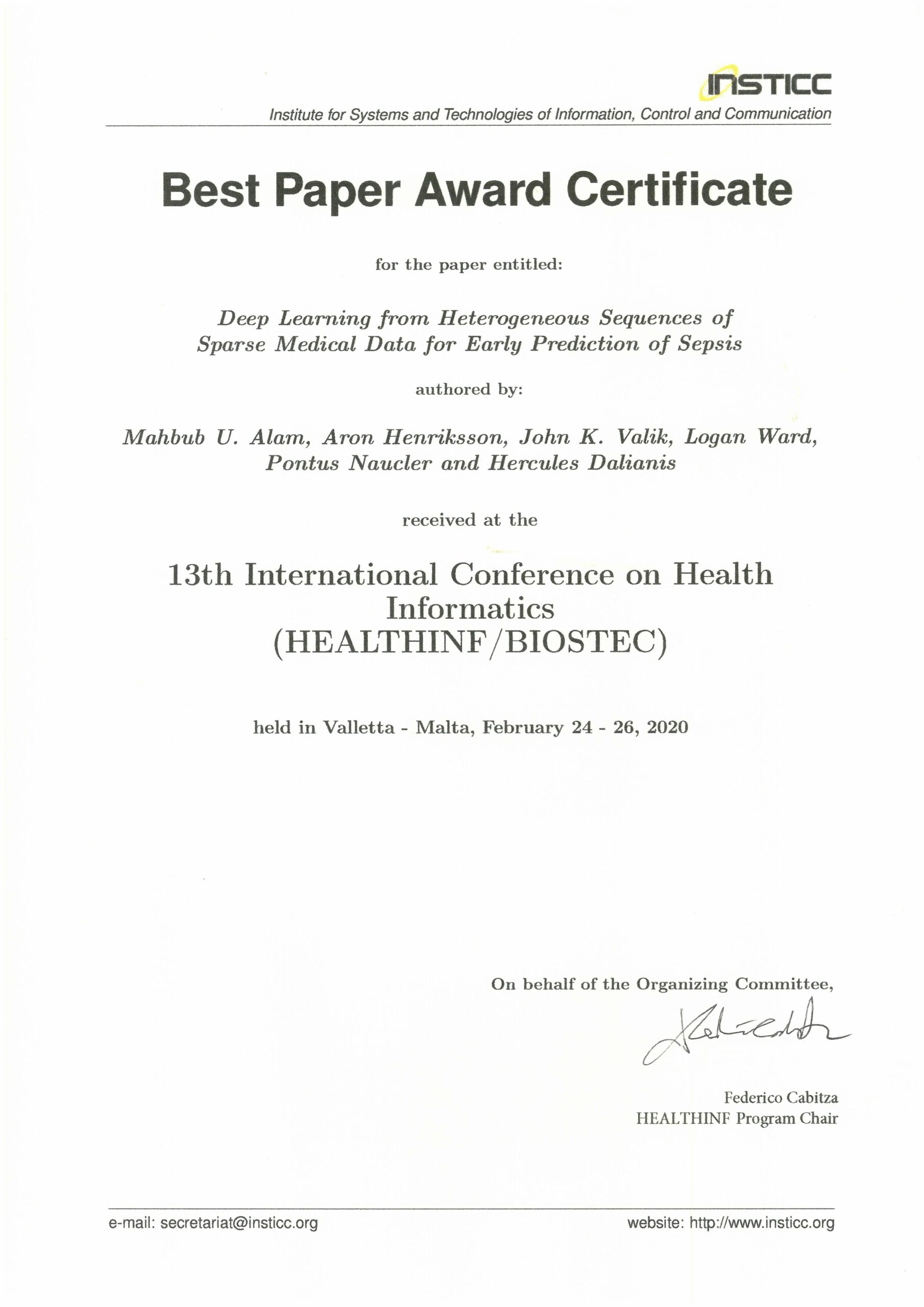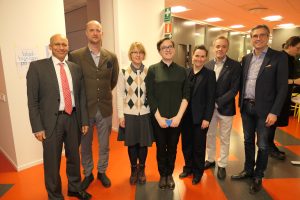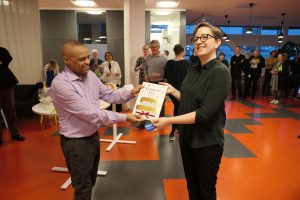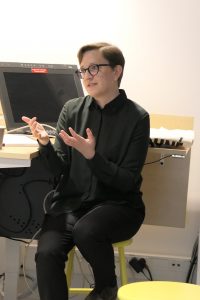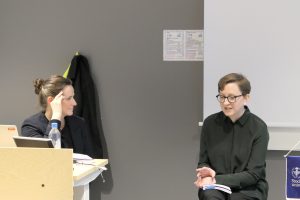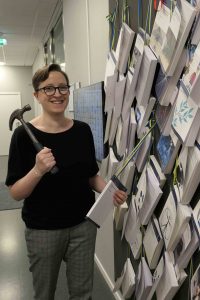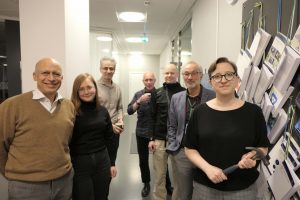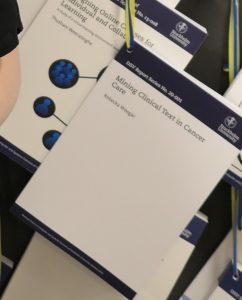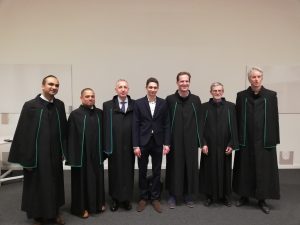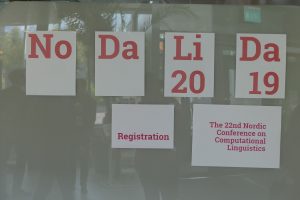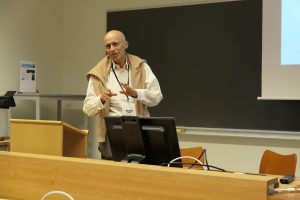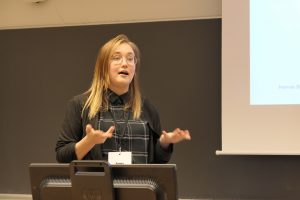Hercules and I recently had the opportunity to attend and present at a workshop in clinical text mining on March 10 in Tromsø. The workshop NLP: mining clinical notes was arranged by The Norwegian Center for E-health Research.
During the workshop, Hercules gave a presentation on why NLP is needed. I gave a presentation on De-identification of text in electronic health records, and the Stockholm University master student Synnøve Bråten presented her current master thesis work on creating a synthetic Norwegian reference standard for de-identification. Sumithra Velupillai and Natalia Viani, from King’s College London, presented different NLP problems for clinical research and how to set up a clinical NLP research study.
